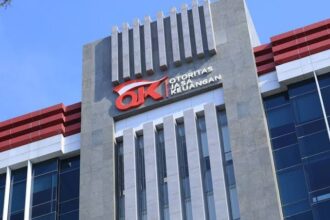Global mobility has strengthened the ties between Indonesia and its diaspora, creating a growing need for clear pathways for former citizens, their descendants, and mixed-nationality families who wish to return or establish long-term residence in Indonesia. To address this need, the Indonesian government introduced the Regulation of the Minister of Immigration and Corrections No. 3 of 2025, providing a dedicated legal framework for diaspora visas, stay permits, facilities, and immigration oversight.
This article outlines the purpose and scope of the regulation, explains who qualifies as diaspora, breaks down the visa and stay permit requirements, and restrictions that the diaspora applicants should understand before applying.
Background and Scope of the Regulation
The issuance of Ministerial Regulation No. 3 of 2025 reflects Indonesia’s growing commitment to strengthening its relationship with the Indonesian origin individuals living abroad. The regulation was designed with two primary objectives: to establish a committed immigration pathways for the Indonesian diaspora and to ensure legal certainty in the issuance of visas, stay permits, facilities, and immigration oversight. By specializing the mechanism, the government wishes to simplify the process of diaspora who want to return, reconnect, or settle in Indonesia.
The regulation specifically defines those who categorized as “diaspora” as including several groups:
- Former Indonesian citizens.
- Foreign descendants of ex-Indonesians up to second degree.
- Foreign spouses of ex-Indonesians or their descendants.
- Foreign spouses of Indonesian citizens.
- Children from legal marriages between foreigners and Indonesian citizens.
To operationalize these provisions, the regulation introduces a single primary visa category for all diaspora applicants, that is Limited Stay Visa (VITAS). This visa can be granted for two overarching purposes, repatriation and family reunification, each representing a distinct pathway for entering and residing in Indonesia.
Key Provisions on Visas and Stay Permits for Diaspora
The regulation introduces several core provisions governing entry, residence, and long-term settlement for individuals categorized as diaspora.
Repatriation Visa Rules
Former Indonesian Citizens
- With guarantor: eligible for stays up to 2 years.
- Without guarantor: may apply for 1-year, 5-year, or permanent settlement categories.
- With special skills: may obtain permanent settlement with the central government acting as guarantor.
Descendants of Former Indonesian Citizens (Up to 2nd Degree)
- Without guarantor: eligible for 5-year or 10-year stays, with the option to pursue permanent settlement.
- With special skills: may also receive permanent stay under a government guarantor.
For applicants applying without a guarantor, the regulation requires the fulfilment of a financial or investment commitment as a form of immigration guarantee. Depend on the category, such applicants must complete one of the following commitments:
- Government bonds
- Shares in public companies
- Mutual funds
- Deposits in state-owned banks
- Property investment valued at USD 1,000,000 or more (for settlement categories)
Investment thresholds generally range from USD 10,000 to over USD 100,000, depending on the duration and category of stay.
Family Reunification Visa Rules
This pathway applies to:
- Spouses of Indonesian citizens
- Spouses of diaspora ITAS/ITAP holders
- Children from mixed marriages
- Unmarried children under 18 joining a parent who holds a stay permit
Stay durations range between 1 and 2 years, with a 6-month option for applicants transitioning toward permanent settlement.
Verification and Interview Requirements for Diaspora Visa Application
Beside the basic documentary requirements, the regulation introduces an additional verification layer for certain diaspora visa applications, especially those involving longer-term or settlement-oriented stays. While some applicants from certain categories must pay verification fees as part of the visa process, others are excluded from these charges but are instead required to attend an interview conducted by a multi-agency evaluation team to confirm the applicant’s background, purpose of stay, and compatibility with Indonesia’s security and policy interests.
The excluded categories must attend interviews by a multi-agency team, which consist of:
- Immigration
- Ministry of Foreign Affairs
- BIN
- Police
- Military
Limited Stay Permit (ITAS) Rules
A Limited Stay Permit (ITAS) is the primary residence permit granted to diaspora after entering Indonesia with a visa. It establishes the legal basis for medium-term residence and serves as the gateway for later conversion to permanent stay.
ITAS may be granted to:
- Diaspora entering with a VITAS
- Babies born in Indonesia to ITAS holders
- Individuals converting from a visit stay permit
Available ITAS durations include:
- 1 year
- 2 years
- 5 years
- 10 years
- 6 months (for settlement-related categories)
Extension of ITAS
Because ITAS functions as a temporary stay permit, the regulation allows extensions for most categories. The extension process is designed to be lighter than the initial visa application, with an emphasis on ensuring that required financial commitments remain fulfilled.
- Extensions are permitted for most categories, except those granted settlement upon arrival.
- Procedures are generally lighter than initial VITAS applications.
- Applicants must provide updated evidence of fulfilling required financial commitments.
Conversion to Permanent Stay Permit (ITAP)
The Permanent Stay Permit (ITAP) provides long-term residency status for eligible diaspora. Holders of an ITAS may convert their status to ITAP once they meet specific requirements and complete the necessary verification process.
- ITAS holders may convert to ITAP either at the immigration checkpoint or at a local Immigration Office.
- Settlement-oriented applicants must pass an interview conducted by the evaluation team.
- Decisions must be issued within three working days following assessment.
Direct ITAP Eligibility
In addition to conversion from ITAS, the regulation also grants direct eligibility for ITAP in certain cases where the individual already has strong legal or historical ties to Indonesia.
Direct ITAP eligibility is available for:
- Former dual-citizen children who choose foreign citizenship
- Babies born in Indonesia to ITAP holders
- Indonesians who lose citizenship while residing in Indonesia
Restriction
Permanent stay cannot be granted to foreigners who:
- Are citizens of countries previously part of Indonesia.
- Work or have worked as government, intelligence, police, or military officers abroad.
- Have been involved in separatist activities.
- Pose risks to national interest.
Source: https://legalhero.id/pusat-data/peraturan/0834c652-7c35-484d-a5ea-c6fe674c0904












